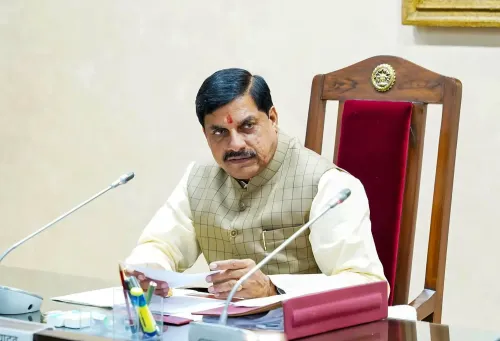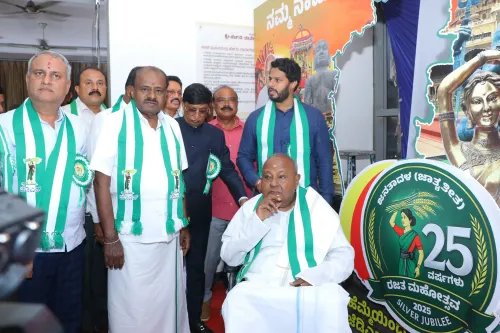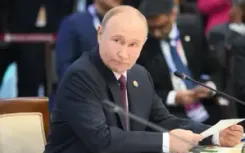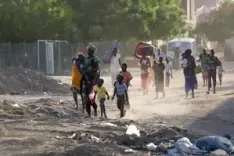How Have Border Residents Transformed Their Lives Through the Vibrant Villages Program?
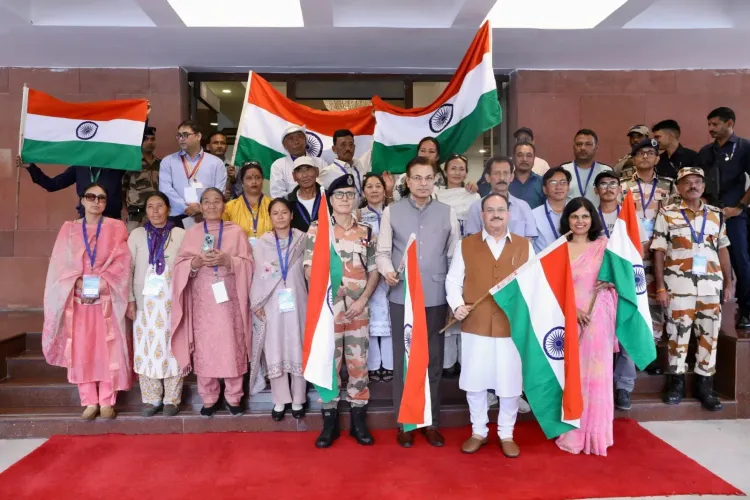
Synopsis
Key Takeaways
- Vibrant Villages Programme empowers border residents, particularly women.
- Focus on improving infrastructure, healthcare, and livelihoods.
- Government support fosters local entrepreneurship.
- Tourism potential is recognized as a key driver for economic growth.
- Residents express newfound confidence and pride.
New Delhi, Aug 14 (NationPress) "We had only watched VIPs on television before, but now we are here in person," stated Damyanti Tufan from Mana village in Uttarakhand on Thursday, reflecting her pride at being invited to the national capital for the Independence Day celebrations as part of the Vibrant Villages Programme (VVP).
Similar feelings were shared by other residents from border areas of Himachal Pradesh, Uttarakhand, Arunachal Pradesh, Sikkim, and Ladakh, who expressed that the government's initiatives have revitalized their communities and empowered them to step beyond their homes, pursue work, and represent their villages on significant national stages.
The Vibrant Villages Programme, initiated on April 10, 2023, by the Ministry of Home Affairs, aims to enhance the quality of life in strategically located villages along India's northern borders.
In Phase-1, 662 villages have been earmarked for development with goals including improved infrastructure, healthcare, connectivity, tourism, and livelihood prospects, particularly for women and youth.
During the meeting, Union Health and Family Welfare Minister J.P. Nadda remarked that the program is fostering vibrant centers in border regions by encouraging entrepreneurship in horticulture, floriculture, and other local crafts.
He mentioned that the Health Ministry is committed to providing healthcare access through the establishment of Ayushman Arogya Mandirs for every 1,000–1,500 residents and the deployment of mobile medical units.
Union Health Secretary Punya Salila Srivastava revealed that 58 healthcare projects have been approved under the National Health Mission for these regions.
Border Management Secretary Rajendra Kumar announced that ₹3,000 crores have been allocated to enhance road infrastructure, along with efforts to provide 4G connectivity and promote tourism and agriculture.
From Chamoli district in Uttarakhand, Manju Devi from Kailashpur village shared that she and other women engage in agriculture for six months and weave wool from sheep for the other six, but struggle with marketing their products.
“Previously, women seldom ventured outside their homes. Now, with government training and support, we can work, travel, and handle banking confidently. With marketing assistance, our income will rise,” she expressed to IANS.
Damyanti Tufan from Mana village said the invitation to Delhi marked a significant achievement.
“This is achievable because the government has facilitated collaboration among women, enabling us to produce local handicrafts and become self-reliant,” she told IANS.
Rukmini Martolia from Ghansali village in the Niti border area expressed her gratitude to the government for enhancing tourism and connectivity, while urging the reopening of the Mansarovar Yatra route via the China border.
“If the route reopens, our youth and women will find employment. Improved roads and tourism can transform our border into a thriving livelihood hub,” she stated to IANS.
Nirmala from Niti Valley also called for the reopening of the Mansarovar Yatra and highlighted the inadequate network services in her area despite a tower being installed.
“We now have roads up to the border, but our youth remain jobless. If tourism is promoted and the pilgrimage route is reinstated, we women can manage homestays and generate jobs for future generations,” she commented.
From Dharchula block in Pithoragarh district, a representative from Kalika Gram Sabha expressed her appreciation for being invited to Delhi.
“In the past, impoverished women like us never dreamed of visiting the capital. Now, we can cook with LPG instead of firewood, courtesy of the Ujjwala scheme, and our homes have tap water. The Prime Minister has restored our dignity and empowered us to step outside our homes,” she said.
From Arunachal Pradesh, Jimmy Negi mentioned that she owns a small resort in a remote area and has gained from the VVP.
“Roads, healthcare, and Airtel 4G have reached our village, resolving our major communication challenges. Tourism is on the rise, and I am grateful to the government for creating opportunities for women entrepreneurs like myself. This invitation to Delhi has been an incredible experience,” she concluded.

